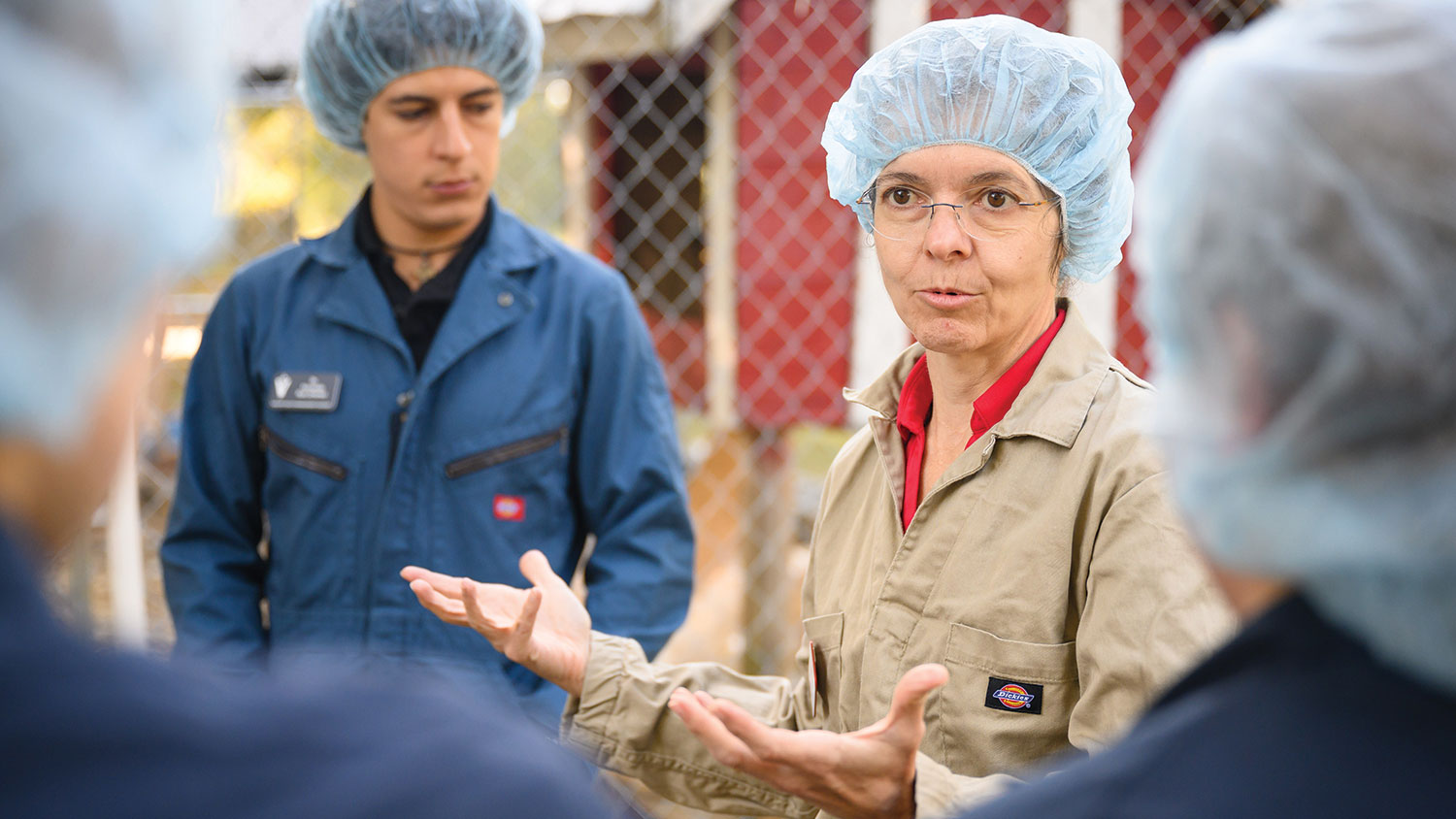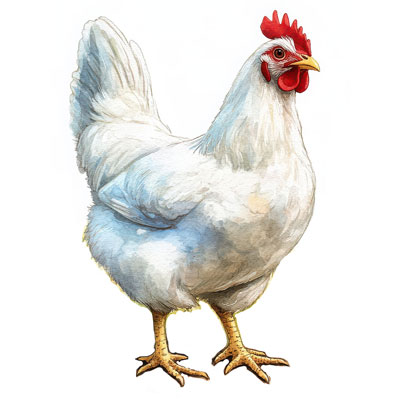Coop Contagion
An NC State poultry veterinarian explains avian flu.

The poultry industry is a $34 billion economic driver in North Carolina, responsible for some 2 million jobs. So when there was a surge in highly pathogenic avian influenza [HPAI] this past winter — resulting in the state’s 18th outbreak of HPAI’s H5N1 strain since 2022 — Dr. Rocio Crespo stood at the ready.
Crespo is a poultry veterinarian in the College of Veterinary Medicine, researching diseases that can cripple both commercial and small flocks. She works with epidemiologists to understand what major risks arise when diseases spread. She partners with Extension, whose agents talk to farmers, educating them and providing resources they need. And she’s researching vaccines for both chickens and people, should HPAI ever reach a pandemic level in the human population.
NC State magazine caught up with Crespo to learn more about avian flu and why there were more cases than normal in 2025.

January is when waterfowl migration occurs in North Carolina, so there’s usually an increase of bird flu that month. How unusual was this past winter? The reason, and this is a hypothesis, there was a big uptick in cases is because the virus adapted to cows. Those cows are many times kept outdoors, then they are moving to other dairies. When those cows have moved, you have wild birds going [to] those dairies.
Why are chickens so susceptible? The virus has to replicate in the cell of the animal. What this [HPAI] has is a master key, so it can go not only to the respiratory tract, [but] it can infect every single cell from every single organ in the bird. . . . [The mortality rate] is anywhere between 95% to 100%.
There have been 70 cases of bird flu in humans in the U.S. since 2022, with one death. So there’s not a high level of concern about human transmission, correct? It is a very low number. That’s one of the reasons why we want to control this and make sure that people who have been exposed to the virus follow up with their doctors. We don’t want these viruses to start to change.
What can be done to protect chickens from HPAI? There is no medication. There are no allowed vaccines for the virus [in the U.S.]. We call it biosecurity. You try to make sure [the virus] doesn’t come in.
Tell Us What You Think
Do you have a personal connection to this story? Did it spark a memory? Want to share your thoughts? Send us a letter, and we may include it in an upcoming issue of NC State magazine.


